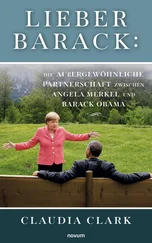As a young man, I had feared I would never have the pleasure of seeing it: East Berliners streaming into the west; and then when I did, I reacted with little more than a passing exhilaration. It was too much all at once. As the Soviet Union fractured and Russia began to be carved up by its rising class of oligarchs, I felt more and more like a Sovietologist pushed out into a world without global Communism. I had always been like that sailor of old who charts his course by the fixed glow of Polaris, only my guiding light had been the ruby red star flying high above the Kremlin. Everything had spun around it, my philosophy and ideals, my understanding of every point between bitter and sweet, and yet now here it was a generation after we’d answered Sputnik with Tang, and not only were Muscovites freely passing beneath their city’s first Golden Arches, but my own daughter was demanding nothing less than organic fresh-squeezed and befriending a Californian vegan.
After watching the Volkswagen Bug sputter away, its black and gold California plates soon lost over the slope of our hill, I moved back into the kitchen, feeling a stabbing sensation in my side. I steadied myself at the island counter-top, suddenly very conscious of my breathing. Was it accelerated? My throat went dry, my scrotum twitched. I felt as if a hole in my skull had opened up, allowing everything that was inside it to seep up and out of me like so much inverted molasses. I sat on a stool, wondering if it was my breakfast. Then the sound of the radio had me sending one hand to the side of my neck to check my pulse.
“Hi. You’re on the air with Mark and Bonnie. Welcome. We’re listening. Do you have a story you’d like to share?”
SINCE THE MID-NINETIES, when Ernst Eberhardt retreated into semiretirement and began catching the bus to work only two or three times each week, I had been performing those administrative duties that my mentor had once reserved for himself. “You’re an honorary German,” he’d joked, while first entrusting me with these responsibilities. “You think anyone else in this building would remember to keep the lights on?” I didn’t mind that my new duties kept me out of the lab more often than not; I enjoyed losing myself in the minutiae of the business, and what’s more, it allowed me to make a home for myself in Ernst Eberhardt’s spacious corner office.
This morning, after speaking to a gum arabic supplier in the Sudan (at a cost of ninety-eight cents per minute) about a long-delayed shipment, I pushed my wrist out from beneath the cuff of my white lab coat—9:23—and saw that I had just enough time before the next item on my day’s calendar to order the Albanian report. After looking to see that the door was closed, I reached into my pants pocket for the slip of paper that Priscilla had given me, then reached for the phone and dialed. Moments later, after navigating through a short automated messaging system, I was speaking with an operator who fielded my order and asked for my name.
“Pardon?”
“Your name,” she said. “Who are we billing?”
I had pulled out my credit card, but only now, as I stared down at its raised letters, did I stop to consider how dangerous this might be. Did I really want the Albanians knowing who I was? And where I lived? Because if they had researched Sweetness #9 as extensively as they had claimed, they might have come across my name in some dark recess of the Federal Register, or been given my notebook —I’d left it behind in the lab! — by a disgruntled former employee of Goldstein, Olivetti, and Dark. I was no “Chen” or “Cohen,” after all. No “Chavez” or “Romanov” or “Smith.” I was a “Leveraux,” and you’d find no great abundance of us in even the Paris phone book. So what would they do once they realized who they were dealing with? These were Albanians, you must remember. From Albania. A country that had split with the Soviet Union when Khrushchev started questioning the worst practices of Stalin. More Stalin, not less — this is what Albania had wanted. And things certainly hadn’t improved since then. Why, just the previous year there had been rioting in the streets of Tirana. Armories had been looted, fires set, the United Nations called in, and all because the government had replaced its formerly controlled economy with a brand of capitalism built on pyramid schemes and incomprehensible systems of modern finance. A billion dollars had been lost, taking money from more than two-thirds of the population, and so what was extortion, blackmail, or mindless violence to a people such as that?
“Are you still there?” the operator said.
“Yes, yes,” I told her, though I wouldn’t be if I gave her my name. If I gave her my name, the Albanians would get together to plot and plan, and then some unshaven man named Darko or Vladislav would step out of the shadows one night saying my name in the form of a question. “David Leveraux?” It could be over like that. I’d nod, or my voice would betray me on instinct, and then he’d bring the gun blurring round from out of sight and fire from the hip, first one shot, then two more as he stood over me, just to be sure.
I cleared my throat. How could I not clear my throat? “Do you take money orders?” I said.
I had heard something about Las Cruces, New Mexico, in the commercial, but only with the help of the operator was I able to get the appropriate PO box number and Zip Code.
“Wonderful.”
“Now, that will take three to four weeks longer to process,” she said.
“Oh, yes, I know, that’s fine, that’s actually much better suited to my needs.”
I hung up then and sprang to my feet, feeling an unexpected lightness. The grumbling of a diesel engine soon turned me to the office window, where I twisted open the blinds and watched as a school bus parked on the far side of the street and began flashing its red lights, the modest skyline of downtown Battle Station to its rear. The first two children to appear — boys younger than my son, no more than nine or ten — came shooting round the front tires like corks popped from bottles of champagne; a quickened step behind them was their chaperone, a pretty young thing fresh from Penn State or Bowling Green, some dimple-cheeked innocent whose face brought to mind ethyl vanillin, marshmallow, flavor #909. She grabbed the boys near the nose of the bus, then demonstrated, with broad gestures and a slow, deliberate speech, that they were supposed to stop, look both ways, and only then cross the street.
The next to appear was an older woman with a thick body and a stern, unforgiving face. She stopped at the side of the bus and held out a stiff arm to delay the approach of the boys and girls behind her, these the more obedient ones. She looked left, right, left, then swung her body out like a gate and drew tight circles in the air with her right hand. The children crossed before her. They came hand-in-hand-in-hand, a long procession of bodies that registered in my mind as a kind of binary code: fat, thin, thin, fat, thin, fat, fat, fat, thin.
I leaned into the blinds to watch the final few children move in beneath the tri-colored sign hanging over the front door. The last child was an Asian boy so obese he had fat folds on his neck and even in the middle of his forearms.
My building sighed: the central air kicking in, sensing a loss somewhere.
The brief feeling of euphoria that I had felt after hanging up the phone was gone. In its place were thoughts of something I never would have believed possible as a young man. A Fat Asia. How could you explain that to a boy raised on Mao?
“Ready?”
I turned to find Ernst Eberhardt standing at the door, dressed in his usual wools and tweed, but somehow lacking the sense of style I’d come to associate with him. He had no fewer than six different colors on display between his black shoes and his tan coat, and though he’d always been blessed with the ability to coordinate the many different aspects of his wardrobe, I’d been noticing of late that one detail was now always off. This morning he looked like a man who had forgotten the color of his socks (yellow) by the time he was buttoning up his vest (burgundy) and knotting his tie (green). Still, I couldn’t identify what exactly I would change.
Читать дальше












